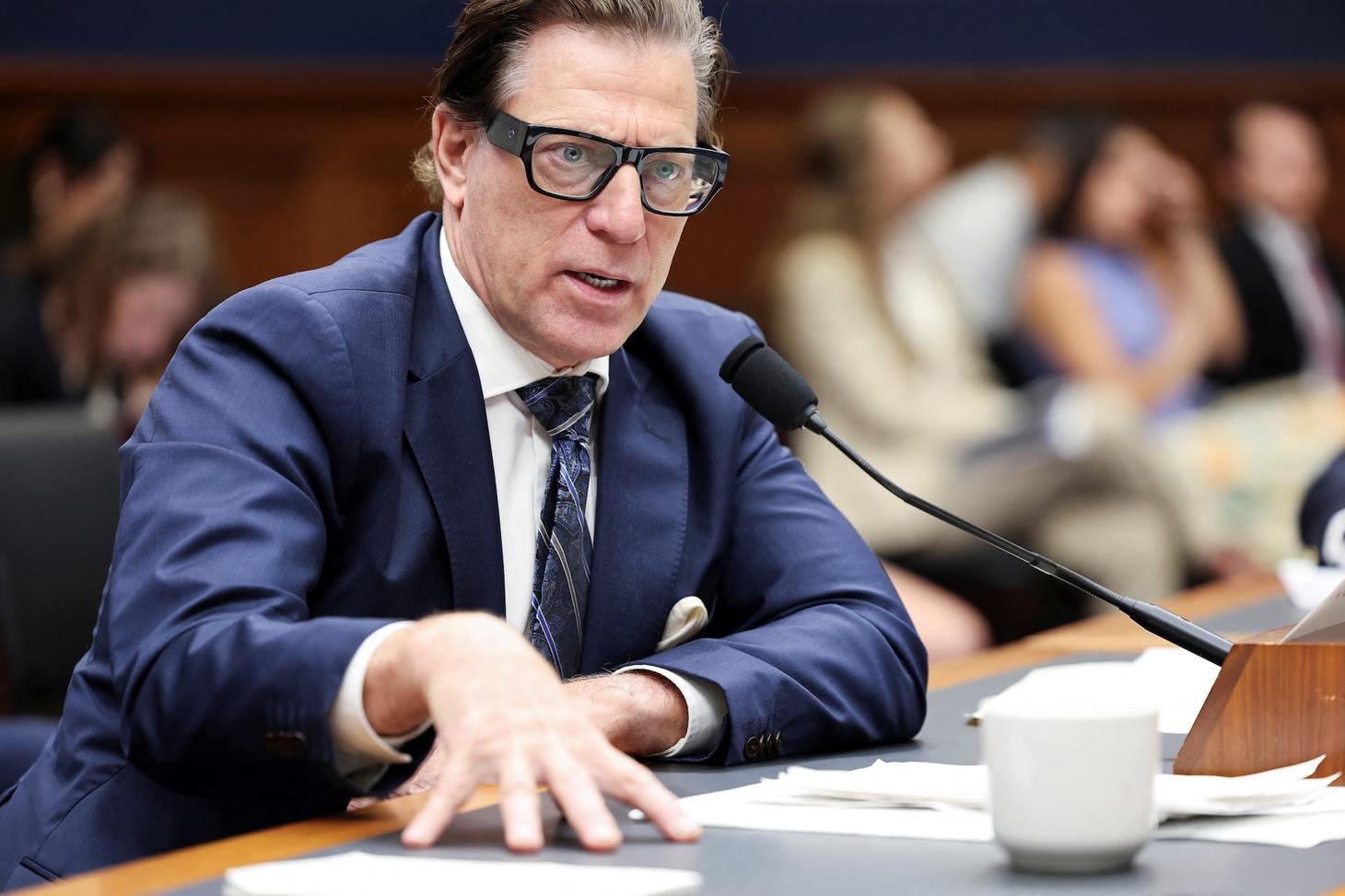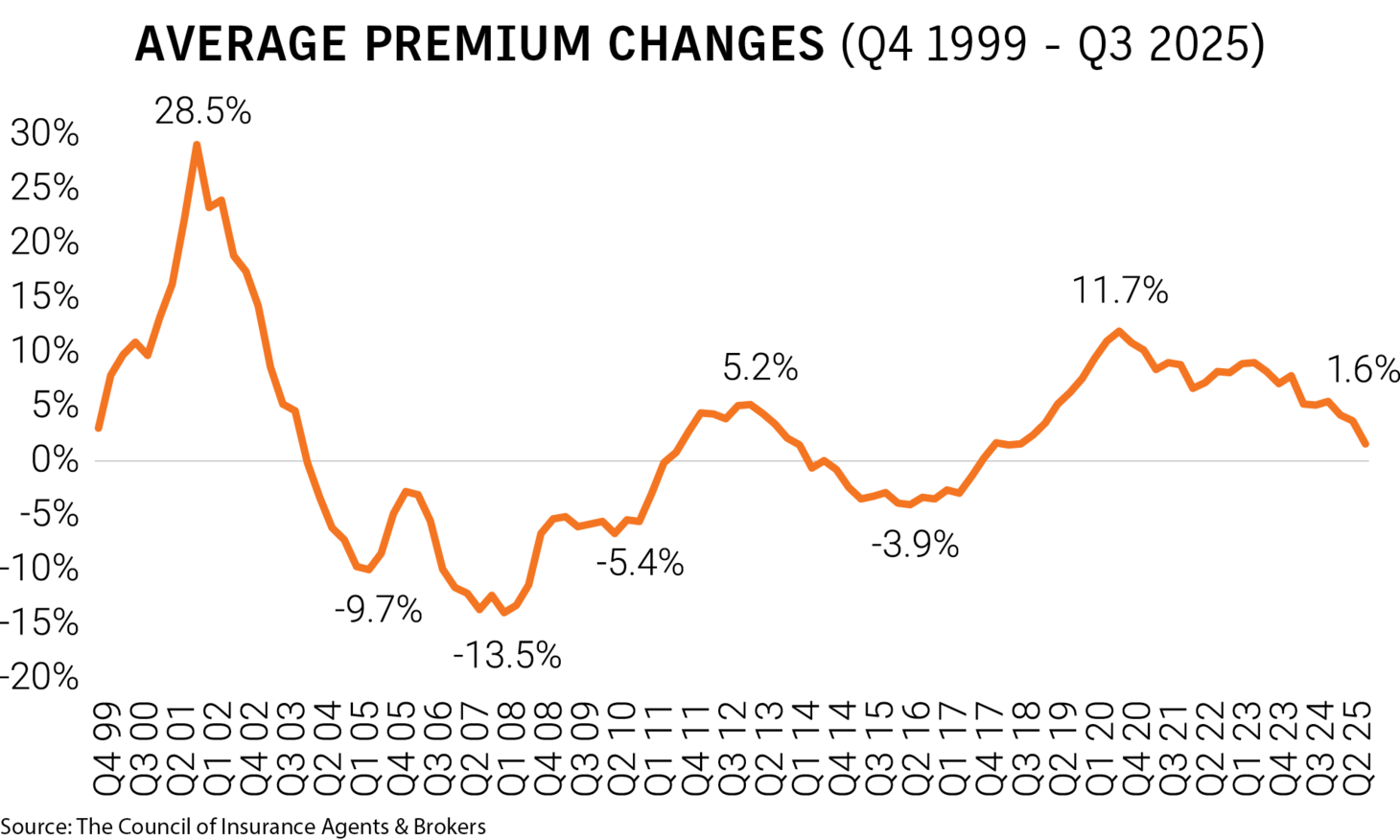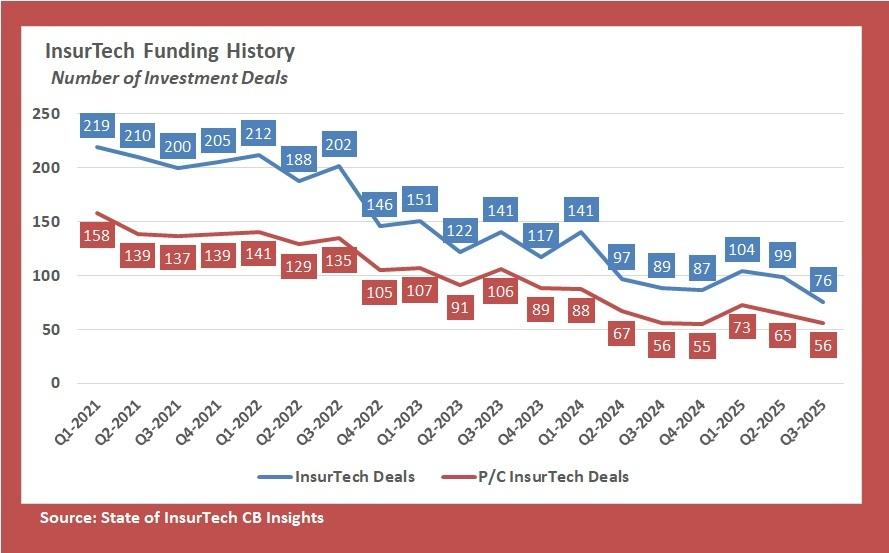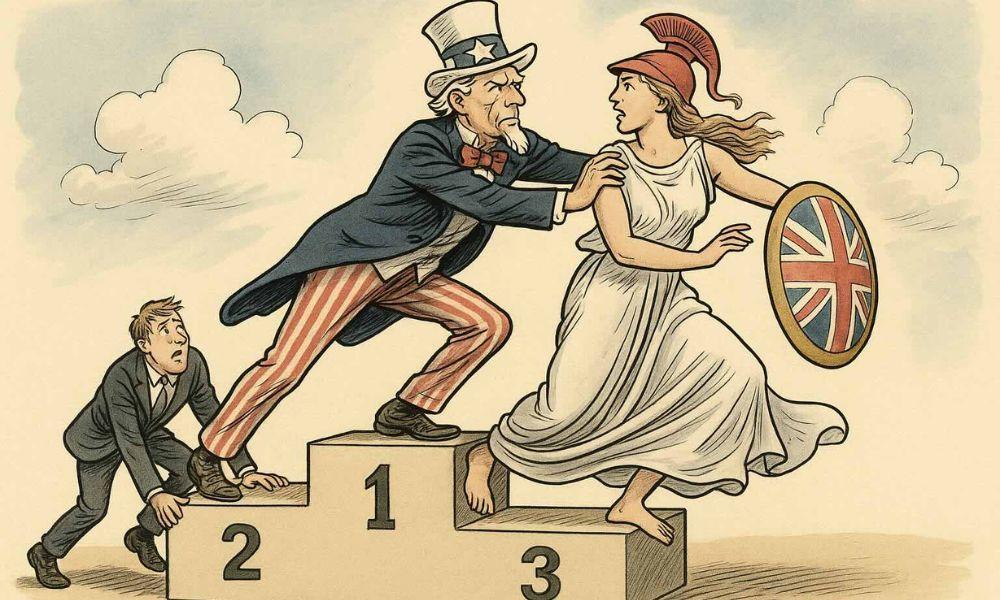Financial Results
Swiss Re reports a net income of USD 4.0 billion for the first nine months of 2025
- Property & Casualty Reinsurance (P&C Re) net income of USD 2.3 billion; combined ratio of 77.6%1
- Corporate Solutions net income of USD 693 million; combined ratio of 87.1%2
- Life & Health Reinsurance (L&H Re) net income of USD 1.1 billion
- Return on investments (ROI) of 4.1%; recurring income yield of 4.1%
Swiss Re reported a profit of USD 1.4 billion for the third quarter of 2025, resulting in a net income of USD 4.0 billion and a return on equity (ROE) of 22.5% for the first nine months of the year. The Group's financial performance benefited from strong underwriting results in both P&C businesses and a solid investment return.
Swiss Re's Group Chief Executive Officer Andreas Berger said: "We have two priorities: delivering on our financial targets and increasing the resilience of the Group. Our results for the first nine months of 2025 reflect this. After significant large loss events in the first quarter, the second and third quarters benefited from low natural catastrophe losses. This provided a substantial tailwind to our property and casualty businesses, supported further by our continued focus on underwriting quality. In L&H Re, we are accelerating efforts to improve the resilience of the in-force book."
Swiss Re's Group Chief Financial Officer Anders Malmström said: "Alongside a strong underwriting result for the first nine months of the year in our property and casualty businesses, we have maintained healthy margins on new business written in the period. Additionally, all Business Units continue to benefit from robust recurring investment income."
News
Ford to sell used vehicles on Amazon, joining Hyundai | Reuters
Amazon shoppers can browse and buy Ford Motor (F.N), opens new tab vehicles on the e-commerce platform starting on Monday, joining Hyundai in adding online options for customers who want to avoid dealership lots
The Dearborn, Michigan-based automaker and the tech company said customers will be able to shop a participating dealer's inventory of used vehicles directly through Amazon. . The program is focused on Los Angeles, Seattle, and Dallas to start, and will initially offer only certified pre-owned vehicles, which are used models that pass rigorous inspections and are sold with specific warranties.

Acting head of FEMA leaves after short and troubled tenure
- Richardson's departure follows criticism over handling of Texas floods
- Trump aims to reduce FEMA's size; says states can manage disaster response
- FEMA chief of staff Karen Evans to replace Richardson
David Richardson, the acting head of the Federal Emergency Management Agency, is stepping down, according to the Department of Homeland Security, ending a troubled tenure just six months into the job and while the Atlantic hurricane season is still underway.
Richardson, a former Marine Corps officer, is the second FEMA head to leave or be fired since May. He departs amid criticism that he kept a low profile during deadly Texas floods in July that killed 130 people and baffled staff in June when he said he was unaware the country had a hurricane season.
A DHS spokesperson gave no reasons for why the FEMA chief was departing. The Washington Post was the first to report that Richardson was leaving.
The DHS spokesperson said in a statement that FEMA chief of staff Karen Evans will replace Richardson, and that FEMA and DHS appreciate Richardson's service.

Subprime Auto Delinquencies Hit 30-Year High
Fitch reports highest subprime auto loan delinquencies since 1994 at 6.65%; negative equity, 29.5% rates, and job cuts fuel rising defaults.Subprime Auto Delinquencies Hit 30-Year High
In October, the share of subprime borrowers who were at least 60 days behind on making auto loan payments rose to 6.65%. This is the highest rate recorded by Fitch Ratings in the metric that dates back to 1994.
Americans making car payments have struggled with surging inflation in recent years, as vehicle prices have risen and interest rates have increased, resulting in ballooning borrowing costs. Second-quarter data from Experian revealed that the rate for deep subprime consumers, defined as those with credit scores between 300 and 500, was roughly 16% for a new car loan and 21.6% for a used car loan.
One borrower, 34-year-old Megan Langhodd from Genoa City, Wisconsin, has a 29.5% rate on a car loan. The result? She pays $483 per month, despite her vehicle being a 2014 Kia Optima.
The share of consumers now falling into the riskiest category has risen to the highest levels since 2019, with 14.4% considered subprime borrowers in the third quarter, up from 13.9% during the same period last year.
To make matters worse, a cooling jobs market has been challenging the economy, with major employers like Starbucks, Target, and Amazon recently announcing layoffs. One report showed that nearly one million U.S. jobs were cut through October this year, the highest for the period since the pandemic in 2020.
In Q3, more than 28% of vehicle trade-ins toward new-car purchases carried negative equity, meaning the value of the cars traded in was less than what the borrower still owed on them. This represents the highest percentage since the first quarter of 2021.

Commercial property rates fall: CIAB
Average commercial insurance rate increases slowed to 1.6% in the third quarter from 3.7% in the second quarter, according to the latest pricing survey from the Council of Insurance Agents and Brokers.
Commercial property rates decreased for the first time since 2017.
Reported premium increases for all lines of business were either flat or lower than the previous quarter.
Large account rate increases slowed to 1.6% from 2.9%, rates for mid-sized accounts rose 1.9%, compared with 4%, and small account rate increases slipped to 1.2%, compared with 4.2%.
Commercial property rates fell 0.2%, compared with a 1.9% increase in the second quarter and an average increase of 7.9% in the third quarter of 2024.
Umbrella liability rate increases slowed to 5.5%, compared with 11.5% in the prior quarter after climbing steadily since the first quarter of 2024.
Commercial auto rates were up 7.4%, compared with 8.8%; general liability rates rose 2.8%, compared with 3.9%.
Workers compensation rates continued to fall, down 1.9%, compared with a 1.8% decrease in the second quarter.
Cyber rates fell 2.6%, the largest decrease out of all lines; directors and officers liability rates slipped 2.1%; and employment practices edged down 0.7%.

Buffett's Berkshire builds a $4.9 billion stake in Alphabet
Warren Buffett’s Berkshire Hathaway Inc&&. acquired 17.9 million shares of Google parent Alphabet Inc. during the third quarter, while further trimming its holdings in Bank of America Corp. and Apple Inc**.
Berkshire’s Alphabet stake, representing 0.31% of the outstanding shares, according to a regulatory filing Friday, was worth about $4.9 billion as of the market close.
Shares of Alphabet rose 1.7% to $281 in extended trading at 5:05 p.m. in New York.
Buffett, 95, who plans to step down as chief executive officer at year-end, has been finding ways to deploy some of Berkshire’s cash pile, which rose to a record $382 billion at the end of the quarter.
The Omaha, Nebraska-based conglomerate recently reached a deal to buy Occidental Petroleum Corp.’s petrochemical business for $9.7 billion and acquired a $1.6 billion stake in UnitedHealth Group Inc.
Berkshire also added 4.3 million shares of insurer Chubb Ltd., boosting the value of that holding to $8.8 billion at the end of the quarter.
Still, the company was a net seller of equities during the period, offloading $6.1 billion of stocks.
AI in Insurance

Shifting to smart compliance: AI in insurance regulation
For even the most efficient insurance carriers, the task of proactively managing regulatory compliance is a complex and time-consuming business function. With constantly evolving state regulations and federal guidelines, internal compliance teams are left to chase a moving target so that the rest of the business can function properly.
To improve efficiency and modernize operations, many industries have begun adopting artificial intelligence (AI) tools to automate their workloads. Insurers (historically cautious in their approach to technology) are understandably eager to explore whether compliance, too, could evolve from rule-based processes to something more adaptive and intelligent with the right solutions framework.
The promise is clear, but so are the risks.CONTINUES
Tim Owen, VP, Product Management; Vertafore
InsurTech/M&A/Finance💰/Collaboration

Has InsurTech Funding Found a Floor?
Two separate reports published this month show that while quarterly InsurTech deal counts have plummeted from heights attained in 2021 and 2022, dollar levels invested in InsurTechs have stabilized since late 2022.
While their deal-dollar and deal-count tallies are slightly different from one another, analysts at CB Insights and Gallagher Re reached the same conclusion in their separate reports, “State of Insurtech Q3’25 Report | CB Insights Research” and “Global InsurTech Report for Q3 2025 | GallagherRe.”
Both reports put the overall deal count to third-quarter 2025 at 76 deals, with CB Insights showing that number representing a decline of 65 percent from a peak of 219 deals in first-quarter 2021. Gallagher Re counts the same number of deals—76—for third-quarter 2025, but measured against a peak of 162 deals that Gallagher shows occurring in second-quarter 2021, the drop is roughly 53 percent.
Commentary/Opinion

Can the US steal London's insurance crown?
For decades, the United States has been the world’s largest insurance market, a place where capital, innovation and risk converge on a scale unmatched anywhere else.
Now, a new question is emerging inside boardrooms from Hartford to Chicago to San Francisco: is the US quietly positioning itself to become not just the biggest insurance market, but the global center of insurance innovation?
The answer may lie in a story that begins far from underwriting desks - in the nation’s productivity numbers.
Recent research comparing economic performance across advanced economies shows the United States continuing to gain ground on one of the most important measures of long-term competitiveness: output per hour worked. Productivity, economists often remind us, is destiny. And for industries built on technology, modeling and data - including insurance - it is increasingly the foundation on which future advantage will be built.
In the US, productivity grew by more than 127% between 1981 and 2024, far outpacing many peers. In Canada, for instance, the rate over that same period was roughly half that. The gulf has widened sharply in the past decade, as American firms invested heavily in digital infrastructure, advanced analytics and automation while others hesitated.
Those numbers may sound distant from the daily realities of brokers, but their meaning is not. For an industry whose future depends on the speed and complexity of its tools, productivity isn’t an abstract economic curiosity - it’s an operating system.

The Next Phase of Personal Insurance
The recent VIU by HUB Personal Insurance Marketplace Report and Rate Guide shows how broader economic trends affect premiums. Notably, the findings demonstrate that standard home and auto rate slowdowns are linked to cooling inflation, while rising rates for homeowners in disaster-prone areas stem from the increased frequency and cost of natural disasters.
With that data in mind, let's break down three of the biggest takeaways from our report:
- CONSUMER EXPECTATIONS ARE RISING AMID RATE FLUCTUATIONS
Consumer expectations for comprehensive, affordable coverage are rising amid continuing rate fluctuations. While rate hikes may be stabilizing, volatility persists. Tariff announcements earlier this year created short-term disruption, but pricing has begun to level out; auto insurance premiums are moderating slightly, with the average increase closer to 10%.
Not surprisingly, on the property side, homeowners in catastrophe-prone areas still face steep increases. Regions at risk of wildfires, hurricanes, hail and convective storms will likely continue to see double-digit rate growth.
Flood policy counts are also rising as both public and private coverage evolves. As risks expand beyond traditional flood zones, pricing is increasingly tied to localized data.
All these factors have contributed to consumers feeling frustrated not only by rising costs but also by the complexity of an evolving insurance landscape. Insurance is no longer just an add-on to a home or car purchase – its cost makes it a major financial decision. This frustration is driving greater demand for clarity on coverage and costs, supported by neutral, expert guidance.
Jeff Wilcoxon is senior strategy and corporate development principal at VIU by HUB
Webinars/Podcasts/Interviews

Webinar explores potential uses for AI in collision repair shops
During an Nov. 12 TechTalk360 webinar, CCC shared data trends they think could be improved by AI use in collision repair shops.
Mark Fincher, CCC’s product management vice president, said customer pay is at the highest level in over 30 years.
“We see the opportunity for AI to help capture more of that customer pay to help address those customer needs as part of that upfront marketing process when you’re trying to get that customer repair scheduled into the shop,” he said.
Kyle Krumlauf, CCC’s industry analytics director, explained some of the reasons behind that.
Awards

PropertyCasualty360 launches Future Claims Leaders recognition
Highly engaged workers are 14% more productive and 22% more invested in organizational success than their peers, according to Gallup.
Regardless of whether you’ve raised a plant, a puppy or a person, humans know without being told that The Living thrive from being nurtured and challenged.
Here’s proof that positive reinforcement can make a significant impact in the workplace:
A study published in 2022 by the Harvard Business Review concluded that employees are 40% more engaged and teams are 44% more productive when they receive frequent recognition.
Gallup reinforced this idea in its research around employee engagement. Employees who receive regular praise are nearly four times more engaged than those who receive little or no feedback, and engaged employees:
- Take initiative and go beyond what's expected of them;
- Stay with their company longer;
- Deliver better customer outcomes;
- Collaborate effectively with others; and
- Show resilience under stress or change.
Here’s your chance to uplift a rising claims professional! PropertyCasualty360 wants to celebrate Future Claims Leaders during a recognition reception at the 2026 Complex Claims & Litigation Forum. We invite insurance executives, claims organizations, and members of the complex claims community to nominate an up-and-coming claims professional who is making a positive impact in the industry.
This is not an awards ceremony. It is an opportunity to recognize and elevate Future Claims Leaders at an event designed to help them prevent, prepare, and prevail during complex claims scenarios and litigation.
Podcast Sponsor

Audio Version - 'Connected: The Podcast' --- Sponsored by Pulse Podcasts
The ‘Connected’ Podcast by Alan Demers and Stephen Applebaum, is a condensed audio version of the day's ‘Connected' newsletter, a daily scan of all the happenings in the world of Insurance & InsurTech News.
Pulse Podcasts: Introduce a new way for your audience to hear your voice! We are a podcast creation service that helps businesses turn their written content, like blog posts and news articles, into beautiful podcasts. Our platform writes the script, records the voices, and mixes the audio to create engaging content for your audience. It's affordable and has super-fast turnaround!
LISTEN AND SUBSCRIBE BELOW
